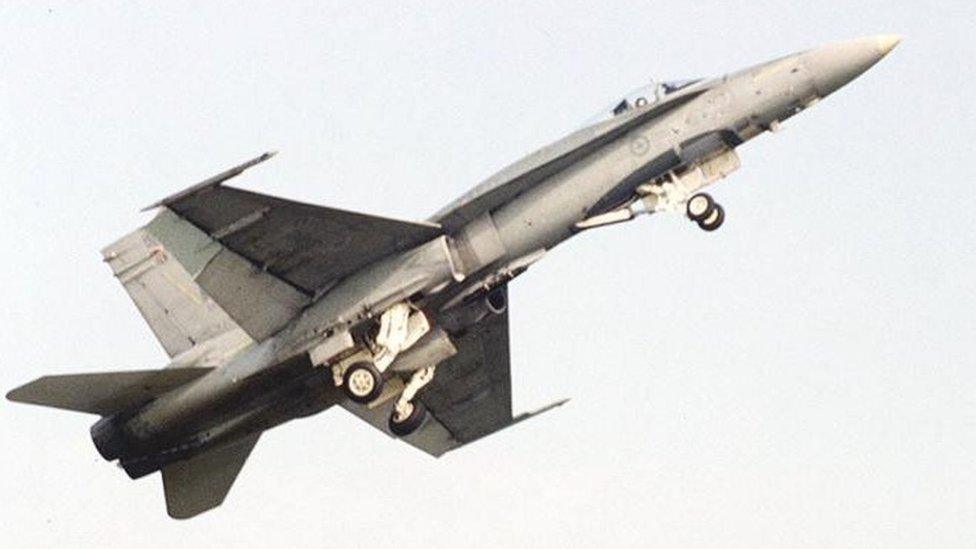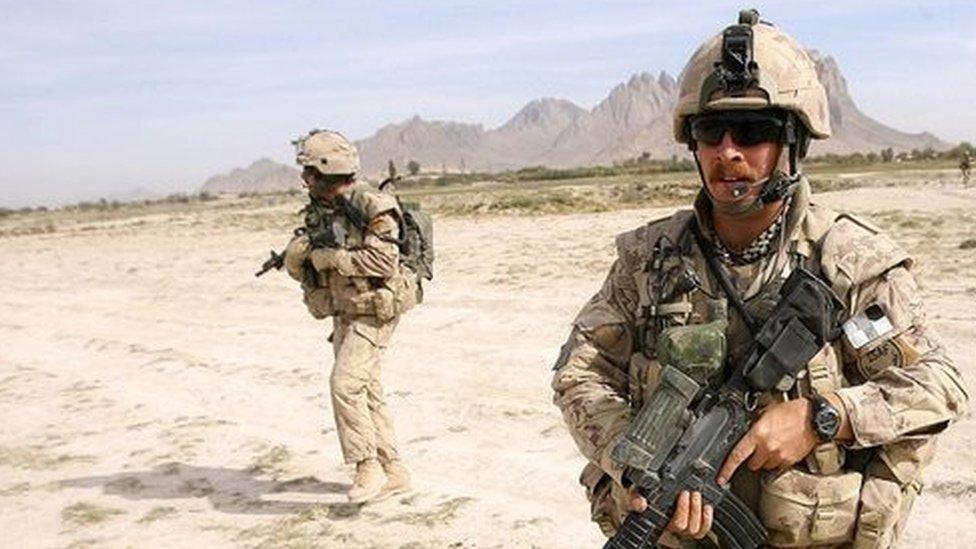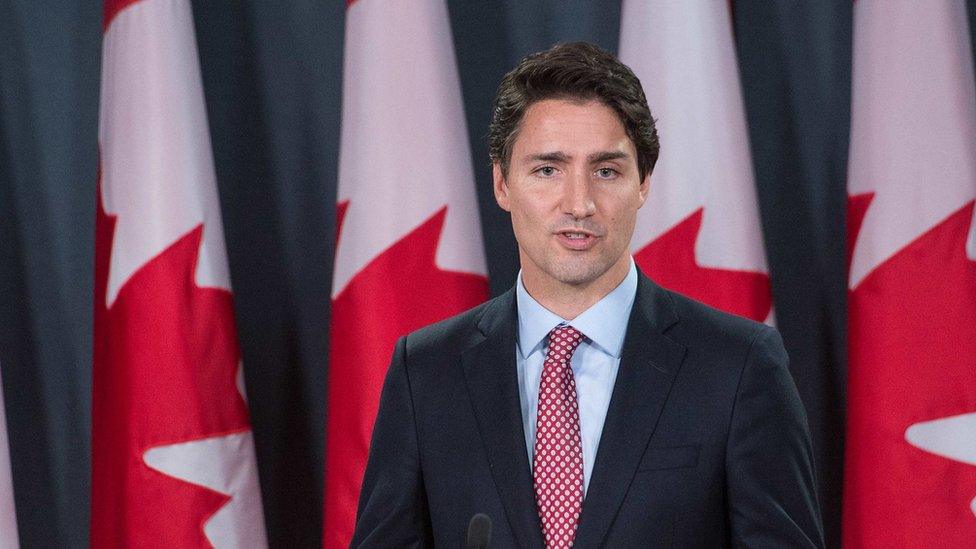Canada IS airstrikes: Trudeau announces 22 February end date
- Published

Mr Trudeau argues that airstrikes have only limited usefulness
Canada will stop bombing targets in Syria and Iraq belonging to the militant group known as Islamic State by 22 February at the latest, Prime Minister Justin Trudeau has said.
Speaking in Ottawa on Monday, he said air strikes alone did not secure lasting stability for local people.
Mr Trudeau, who was elected in October, promised to withdraw six fighter jets from the region during his campaign.
But Canada will keep two surveillance planes in the region, he said.
It will also keep refuelling aircraft in the area and will increase the number of Canadian soldiers training local troops who are fighting Islamic State (IS).
"It is important to understand that while air strike operations can be very useful to achieve short-term military and territorial gains, they do not on their own achieve long-term stability for local communities," Mr Trudeau said.
"Canadians learned this lesson first hand during a very difficult decade in Afghanistan where our forces became expert military trainers, renowned around the world."
He said Canadian armed forces would instead allocate more military resources to training Iraqi security forces so that "a murderous gang of thugs who are terrorising some of the most vulnerable people on Earth" could be defeated.

Canada will increase the number of troops it provides to train Iraqi soldiers, the prime minister said

The prime minister's move was criticised by the opposition
How is Canada's new leader doing?
Mr Trudeau's move has been criticised by the opposition, whose leader Rona Ambrose in parliament accused the government of "stepping back from the fight against IS when our allies are stepping up".
"The reality is that when we talk about Canada's new approach to fighting IS... Canada is backing away," she said.
But Mr Trudeau is adamant that his announcement on Monday makes sound strategic sense.
"Call us old-fashioned, but we think that we ought to avoid doing precisely what our enemies want us to do. They want us to elevate them, to give in to fear, to indulge in hatred, to eye one another with suspicion and to take leave of our faculties," he said.
Many Canadians have lost enthusiasm for overseas military missions after a decade of involvement in Afghanistan that ended in 2011, correspondents say. More than 150 Canadian soldiers were killed over that period.